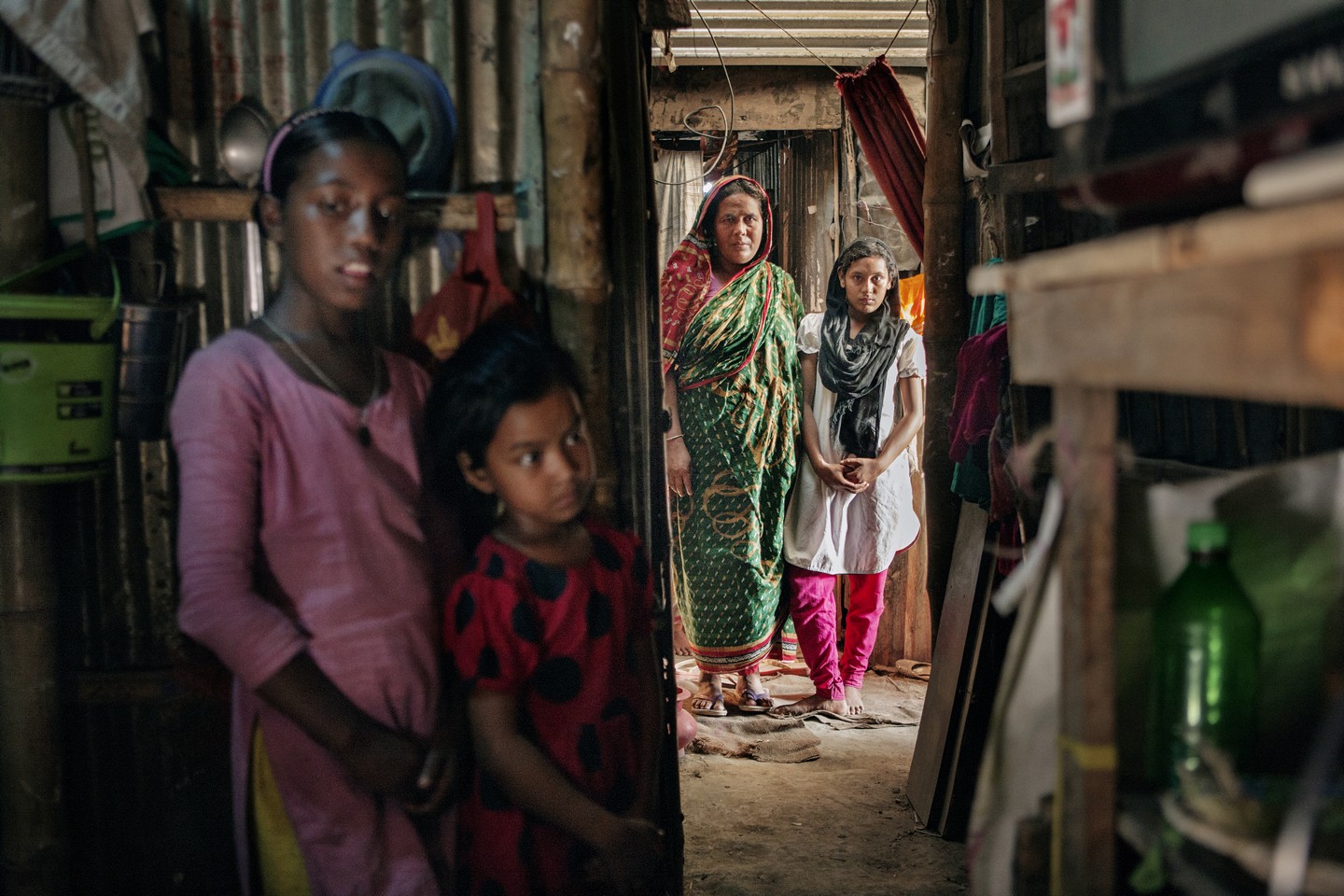The Invisible Slaves of Dhakha
Text and photos by Marco Giannattasio/Parallelozero
Abridged by Syharn Shen (沈思含)
The Invisible Slaves of Dhakha
Text and photos by Marco Giannattasio/Parallelozero
Abridged by Syharn Shen (沈思含)

At seven, Sonia, now nine, was kidnapped from the streets of Tongi while scavenging for food. Forced into domestic servitude, she escaped after one year and seven months and currently resides in a safe community outside Dhaka.
In Dhaka, Bangladesh, I discovered a heartbreaking world of invisible suffering: the domestic slaves. Among them was Sonia, a nine-year-old with a shaved head and an atonal voice, narrating her life's tragic turn. Once living with her family on the streets, she was kidnapped by a policeman and forced into domestic servitude, enduring unimaginable cruelties, such as being burned with a hot spoon by her captor's wife. Sonia, undocumented and thus "non-existent," represents a perfect crime in a system that overlooks such injustices.
Dhaka's rapid growth, spurred by an imported industrial and digital revolution, has created a middle class with a demand for domestic labor, often met by child labor. The city, teeming with millions living in poverty, provides an endless supply of potential "little slaves." These children, primarily girls, are kept at home, always available to the family, and compensated only with food and shelter, a modern form of slavery.

From a village two hours from Dhaka, 13-year-old Adisa was given to a family by a "relative." She handles all household chores while the homeowner, Runa, preoccupied with social media and shopping, admits to depression from a failed marriage. Adisa has no room or bed in the house.
These domestic slaves arrive through various means: kidnapping, human trafficking, or as a last resort by families unable to support their children. Often coming from rural areas, they are brought to Dhaka by an "uncle," a term used loosely for any family acquaintance. The meager earnings for their work, if any, are usually managed by the middleman, with the families being deceived about the usage of these funds.
Uncovering cases of domestic slavery is challenging due to societal shame and attempts to hide these practices. The presence of child workers is often concealed, or the children are misrepresented as distant relatives. In a society where child labor is rampant, the plight of domestic slaves is often overshadowed and ignored, leading to their marginalization and lack of education. This isolation is in stark contrast to the Tokai, street children who, despite their harsh conditions, have developed social skills necessary for survival.
The girls, working in families with children, often find themselves in servitude to even those younger than themselves. This constant submission hinders their ability to develop relationships and perceive themselves as human beings. They are often subjected to violence and sexual abuse by male family members.

Akhi, aged 12, works as a domestic servant while living in a shack with her family.
Action for Social Development (ASD), an NGO, works pragmatically to improve the lives of these girls. While criticized for not directly challenging the slavery system, ASD's work is crucial, providing basic literacy and a safer working environment. Their approach includes meetings with the mistresses, focusing on the girls' safety and creating a sense of empathy towards them. Yet, the inability of these women to see the girls as human beings is chilling.
Upon reaching puberty, many of these girls are discarded back onto the streets, where they display self-destructive behavior, echoing the abuse they endured. At Dhaka's main train station, I met Mousume, a former domestic slave with scars covering her body, now adopted by a group of Tokai. Her inability to recall or articulate her past pain reflects the profound impact of her experiences.
In this chaotic city, the lives of domestic slaves like Sonia and Mousume remain largely invisible, their stories a testament to a grave human rights crisis that demands attention and action.

Momena, aged 15, living in a small shack with her mother and two sisters, returned to her family after working as a domestic servant. She continues in domestic work, earning a modest salary, a rarity among her peers.
Contact Us | Plan a Visit | Donate
8 Lide Road, Beitou 11259, Taipei, Taiwan
886-2-2898-9999
005741@daaitv.com
©Tzu Chi Culture and Communication Foundation
All rights reserved.
